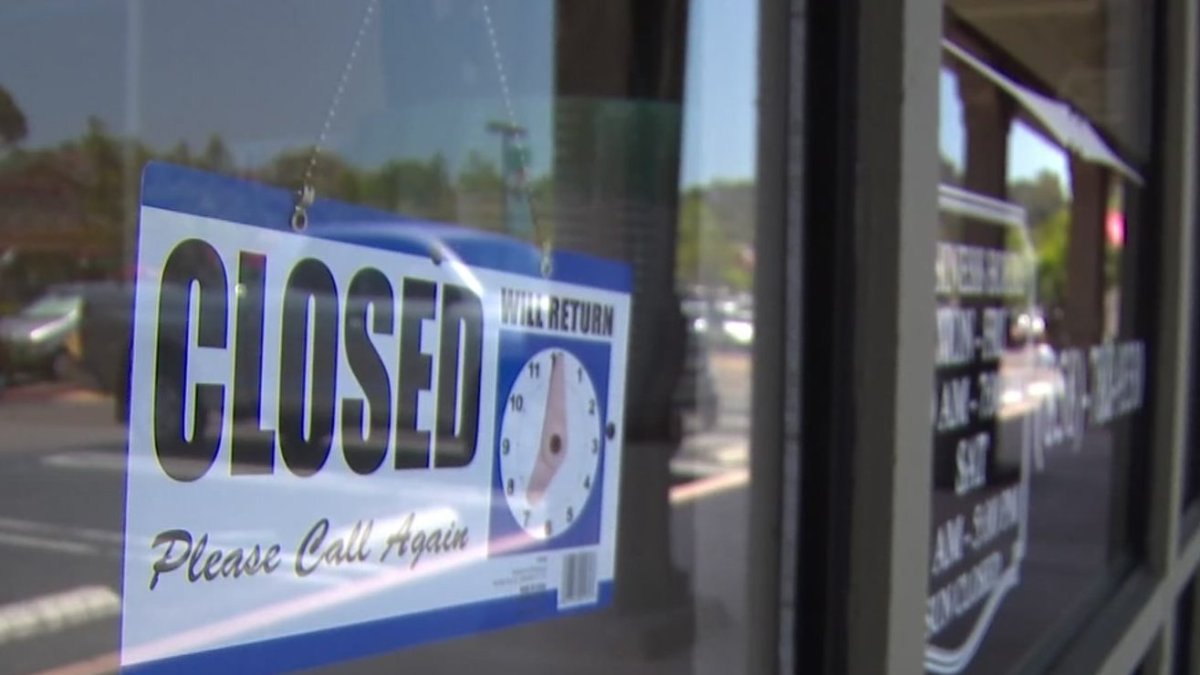
With some jobs asking employees to return to work, those workers have some questions about their return. NBC 7’s Consumer Bob has some insight.
As businesses in San Diego begin to reopen, some employees are wondering if they have to go back into work. There are a lot of questions people have been asking employment lawyers, so NBC 7 Responds got the answers to the most common issues.
"Most people were calling us about the fact they were laid off from their job," said attorney Daniel Kalish of HKM Employment Attorneys. "Now most of the calls are just the opposite."
HKM set up a hotline that people can call and try to get answers to legal questions about their jobs and unemployment. After more than 1,000 calls, they noticed a lot of repeated questions. Here's what they tell callers.
"Do I have to go back to work if my employer asks?"
Many people are concerned about their safety during the pandemic, but Kalish says that is not a legal reason to avoid going back to work. If your employer gives you your job back or schedules you to work again, turning it down could actually hurt you.
"You likely will lose your job and you do run this very serious risk of losing your unemployment benefits at that time," said Kalish. "That's because those people have been offered a position and they've decided not to take it."
California is a work "at will" state. Kalish says with a few exceptions, that means your boss does not need a specific reason to fire you, or even cut your pay.
"I can't file for unemployment."
This is the number one call HKM receives, but they cannot do much to help.
Local
"[They say] they need to apply for unemployment and can't get through," said Kalish. "People feel very powerless."
California's Economic Development Department (EDD) is in charge of distributing unemployment benefits and says it has been "overwhelmed" by the number of callers. Since mid-March, they have received a record nearly 5.5 million unemployment claims. The EDD is now hiring 1,800 people to help process the new applications.
"I'm making more on unemployment, should I find a job?"
The reason people are making more money is because Congress is giving people an extra $600 a week due to the pandemic. But Kalish says those extra payments will end in just a few weeks. The EDD website says the extra $600 will end on July 25, 2020.
"I have a family member who is immunocompromised or has a health issue. Can I stay home instead of going back to work?"
The CARES act does help people who have a child with health issues or who cannot find childcare. Kalish says those people can take 12 weeks off without pay and their job is legally protected.
Kalish also says that if you yourself are compromised, it would likely become an ADA issue. It is a bit of a grey area, but people with health issues are generally protected by law so your job should still be waiting for you. However, if you have a parent or other family member you live with who is immunocompromised, your job may be threatened depending on what your employer decides.
"Does my employer have to tell me if a coworker is diagnosed with COVID-19?"
Kalish says there is not a clear requirement, but there could be a liability issue if someone is diagnosed with the coronavirus and the other employees are not told about it. That would mean you may have legal grounds against your employer for not keeping you safe.
"The one thing employers can not do is reveal the name of the person who was diagnosed with coronavirus," said Kalish.
If your employer requires you to return to work after someone was diagnosed, there are not many protections for you.
"The employee has to decide whether or not he or she is going back to work," said Kalish. "If the employees do not go back to work they risk getting fired and losing access to unemployment benefits."
"I don't think my employer is following the county or CDC guidelines to keep employees or customers safe."
Kalish says this is a grey area, but he says people should reach out to the state attorney general and file a business complaint. He recommends all businesses make sure they comply with the rules.
"[It] hurts morale for employees and makes them incredibly frightened to go back to work," said Kalish. "If someone goes back to work and the employer is not abiding by the guidelines and someone gets coronavirus because of that, then they may have a legal action against the company."
"My employer received a PPP loan and can pay us again. Does that affect my unemployment benefits?"
Kalish says you would no longer be eligible for unemployment benefits at that time.
"[A general rule is] if the employee does not go back into work, that employee will lose his or her rights for unemployment benefits," said Kalish.
Kalish says the unemployment benefit program was designed to help people without a job, so if you are offered a position and turn it down you would no longer qualify.
HKM Employment attorneys say they are keeping the hotline open for the foreseeable future. They also have a webpage with advice specific to San Diego.